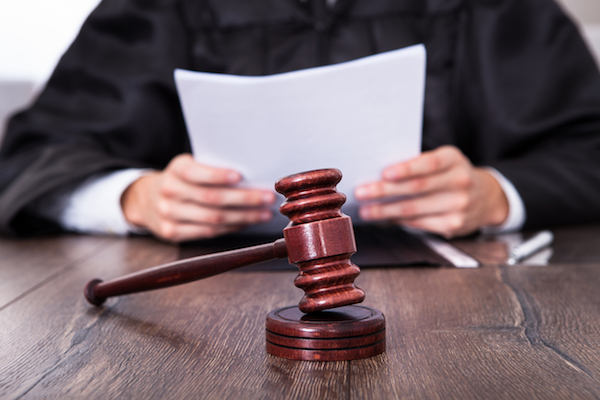 By Jill D. Schmid, Ph.D.
By Jill D. Schmid, Ph.D.
I was recently reading an article that was published a few years ago in our local bar journal about the common pet peeves of our local judges here in Portland, Oregon. As I read the list, I was struck by the similarities to what jurors say are their top pet peeves. As a trial consultant, I’ve interviewed jurors for post-trial debriefings, shadow jurors, mock jurors, and watched and listened to jurors in countless jury selections. With this background, below is a list of what I’ve consistently heard from jurors; not surprisingly, what irks judges also irks jurors.
1. Bad Behavior: The article referred to this as “incivility” and “casualness and unprofessionalism.” The author said that “lawyers’ effectiveness to the judge and jury” is undermined when the lawyers “snipe at one another.” He also says that “it does not impress the judge or jury when lawyers bicker with or interrupt each other.” 100% yes! I can recall a trial where the lawyers’ animosity towards each other was so noticeable, jurors asked to be moved further away from counsel. You’ve had a long relationship with opposing counsel, but the jurors have just met you. They have no knowledge of the months or years of battle; they have no context for the private arguments that you bring to trial. Rudeness, condescending attitudes, bickering, disrespectful behaviors (to the court staff as the author mentions) can all feed the preexisting attitudes that many jurors have about attorneys. Best to not fan the flames.
2. Wasted time: The author referred to this as “tardiness.” The slow pace and delays might not be your fault, but jurors will still blame the attorneys. You can help by always saying “Ready to go” (when asked), reducing side bars and objections, and having a clear, efficient game plan (see points 3, 4 and 5). You should also consider that there are situations where jurors perceive you as wasting time simply because they do not understand the process. For example, jurors often fail to understand why attorneys have to lay foundation. Instead, they think the attorney is taking a long, painful road to get to the interesting testimony. In this situation, you should look for opportunities to be very efficient with laying foundation.
3. Lack of clarity: The author referred to this as “accuracy.” In particular, the statement, “Advocacy should be looked at more surgically; often, less is more,” hit a nerve. He said too often judges need to “hunt for relevant support,” and he said support should be “meaningful” and “easy to find.” While a slightly different context, jurors complain of the same thing. Often, they have to do the work of the attorney – they have to figure out where, why, and how the arguments and evidence prove a particular point or are even relevant to the case. Jurors grow weary very quickly if they have to exert too much mental energy figuring out what’s really going on. One simple solution is to sign-post more throughout trial. As one attorney we work with recently said, “you tell the jurors what you’re going to say, you say it, and then you tell them what you just said.” There simple and efficient ways to accomplish this. It may be as simple as a transition during cross examination such as: “One of the elements of a negligence claim has to do with whether or not the action or inaction was reasonable, so I want to ask you a few questions about what one might consider reasonable…”
4. Lack of brevity: The author mentioned this related to motion briefings. In trial, it’s the opening, closing, or even a witness examination that goes on and on and on. Recall point 3 and remember your opening and closing (in particular) need to efficiently and clearly get to the point. Jurors’ attention spans are the same as everyone else’s on the planet – and according to 2015 research, the average attention span is only 8.25 seconds! That’s down from a whopping 12 seconds in 2000.[1] While repetition is important for making an important point stick, too much repetition only bores (and angers) jurors. Many writers will argue that nothing is good until the sixth or seventh draft and the hardest work is cutting, not the actual writing.
5. Disorganized presentations: Long-winded openings, closings, or witness examinations stem from disorganization; and disorganization often comes from what the author called “insufficient preparation.” Disorganization leads to the rambling speech where one says things like, “…but, I’ll talk about that later.” Or “…oh yeah, let me come back to what I talked about earlier.” Or “I forgot to mention…” A disorganized presentation means that little to nothing will be retained by your audience since they are spending so much mental effort trying to figure out what’s going on. The best way to improve organization is to figure out the 3-5 central things that you must prove to the jury and make those the 3-5 main points of opening and closing. This requires tough choices about what to include and what not to include. If everything is important, nothing is important. The more you say, the more jurors will forget. The less you say, the more they will remember. Keep it simple and keep it to the essential items.
One final comment about the author’s “know your audience” complaint. He remarked that you need to know your judge, but you also need to know your jurors. Doing so in voir dire is critical. It’s the only time you learn about the experiences and attitudes that shape the way they view the world. Not only is the information invaluable for informing your strikes and cause challenges, but you can also learn things that you can incorporate into your overall trial strategy.
[1]National Center for Biotechnology Information, U.S. National Library of Medicine.




